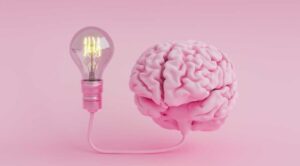Returning to school can interfere with the biological rhythm because it can change students’ and teachers’ daily lifestyles and sleep patterns. Biological rhythm involves natural physiological and behavioral change that repeats in a 24-hour cycle. These cycles include various biological functions such as body temperature, hormone secretion, wakefulness and sleep. Especially after holiday periods, it can affect students’ biological rhythms because during the holidays students often have a more liberal sleep and living pattern. This can affect the body clock and biological rhythm.
Biological rhythms can be studied in two main types; Circadian and Ultradian rhythms
Ultradian rhythms refer to biological rhythms that are shorter than 24-hour cycles. For example, processes such as heart rate, respiratory rate and some hormone levels may have rhythms of shorter duration. These rhythms can change in response to the body’s immediate needs and activities.
Circadian rhythms are biological rhythms that have an approximately 24-hour cycle. The best known circadian rhythm is the cycle of sleep and wakefulness. Body temperature, melatonin production, hormone regulation and some metabolic functions depend on this cycle. Circadian rhythms are regulated by a control mechanism called the internal biological clock, but environmental factors, especially light, can influence these rhythms.
An important aspect of biological rhythms is that they help the organism to live in harmony with its environment. For example, circadian rhythms encourage being more alert and active during the day and resting at night. These rhythms adapt sleep patterns and body functions to day and night conditions. Disruption or dysregulation of biological rhythms can cause health problems and it is therefore important to monitor and maintain them regularly.
Going back to school can create a mismatch between students’ biological clocks and school hours. It can take time to re-establish the body clock, especially when it is necessary to sleep later and wake up earlier. During vacation, students may tend to wake up and sleep late. It is possible that sleep problems may arise during the adjustment period. Anxiety and stress may also increase among students. These emotional factors can affect sleep patterns and biological rhythms. Another important detail is outdoor light. Daylight has an important role in regulating biological rhythm.
Suggestion
If students spend more time in the classroom, this can affect their biological rhythm. For this reason, we recommend that students spend time outdoors after school, depending on availability. Spending time outdoors will also be stabilizing for parents.
Reference
Psychologist Merve Altındağ
YÜKSEL, A. (2019). Sirkadiyen ritim ile yeme zamanı ilişkisi. Sağlık Profesyonelleri Araştırma Dergisi, 1(1), 38-43.
ERDEMİR, İ., & TÜFEKÇİOĞLU, E. (2008). KORTİZOL SİRKADİYEN RİTMİNİ ETKİLEYEN BAZI FİZİKSEL VE FİZYOLOJİK PARAMETRELERİN KARŞILAŞTIRILMASI. Balıkesir Üniversitesi Sosyal Bilimler Enstitüsü Dergisi, 11(20), 1-10.
Akinci, E., & Orhan, F. Ö. (2016). Sirkadiyen Ritim Uyku Bozukluklari: Circadian Rhythm Sleep Disorders. Psikiyatride Guncel Yaklasimlar, 8(2), 178.




